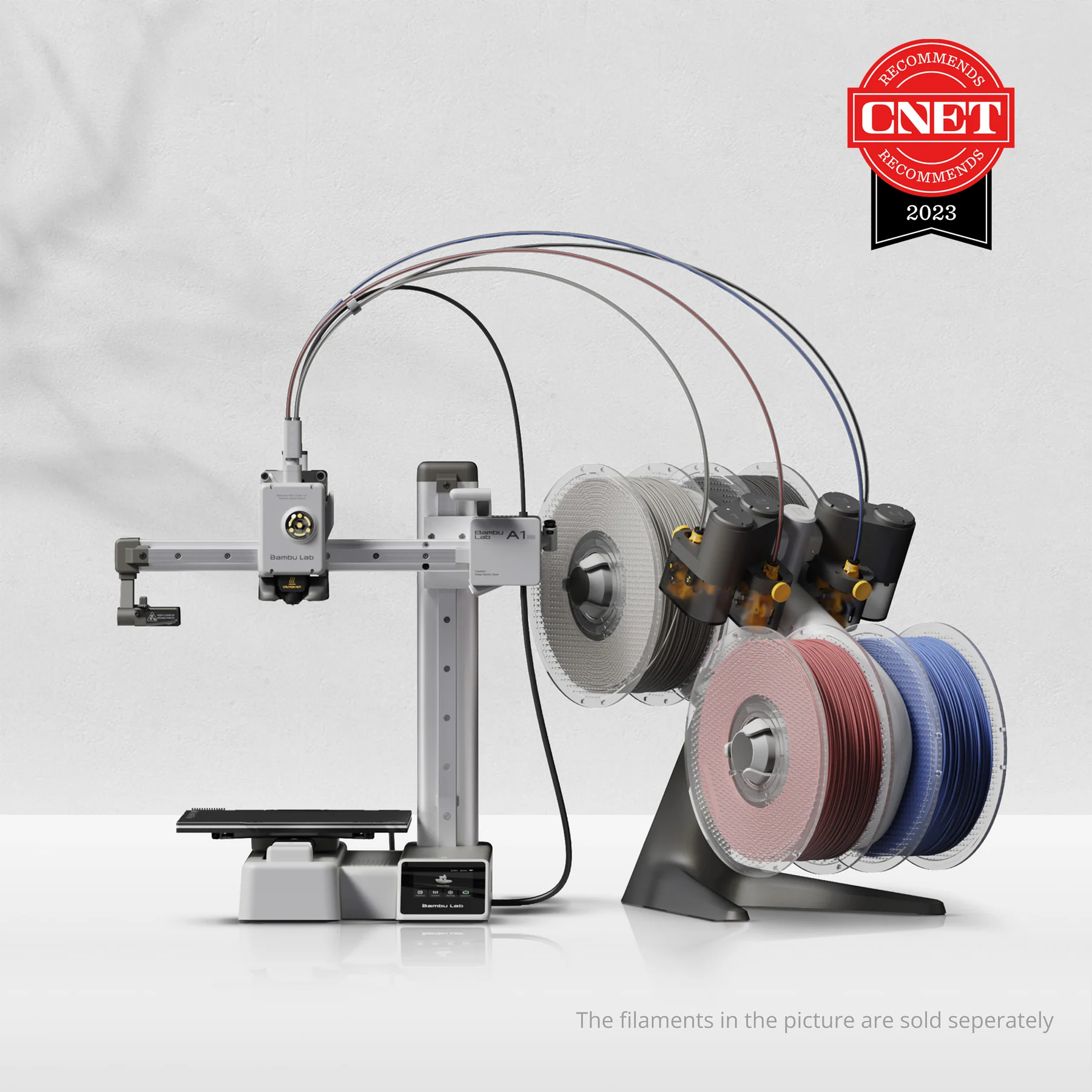Compare A1 Mini vs KP3S PRO V2
Comparison between the best 3D printers
Choose the best 3D printer at the best price. The cheapest 3D printers are here.
Buy a 3D printer here with 3D Fila.
 |
 |
|
| Model | A1 Mini |
KP3S PRO V2 |
| Printing Material | Filament | Filament |
| Buy Filament for Bambu Lab A1 Mini | Buy Filament forKingroon KP3S PRO V2 | |
| Estimated price | $549,00 | $229,00 |
| Manufacturer | Bambu Lab | Kingroon |
| Release Year | 2023 | 2024 |
| Print Volume [mm] | 180x180x180 | 220x220x250 |
| Printer Size [mm] | 315x347x365 | 420x400x450 |
| Weight [kg] | 5,5 | 12,6 |
| Power Loss Recovery | YES | NO |
| Enclosed printer | NO | NO |
| Bed Leveling | Automatic | Automatic |
| Filament End Sensor | YES | NO |
| Bed type | Heated | Heated |
| Power supply system | Direct Drive | Direct Drive |
| Standard nozzle | 0,4 | 0,4 |
| Maximum Nozzle Temperature [°C] | 300 | 260 |
| Maximum Bed Temperature [°C] | 80 | 100 |
| Maximum printing speed [mm/s] | 500 | 350 |
| Filament holder | YES | YES |
| Camera for supervision | YES | YES |
| Recommended filaments | PLA, PETG, TPU, PVA | PLA, PETG, TPU |
| Recommended slicers | Bambu Studio, Super Slicer, Cura, Prusa Slicer, Orca | Cura, Orca Slicer |
| Maximum Resolution [mm] | 0,1 | 0,01 |
| Processor | 32-bit Silenciosa | |
| Display | Touchscreen 2,4'' | LCD Mono |
| Power Supply | 150 W | 300 W |
| Connectivity | Wifi, Bambu bus, Cartão SD | USB-C / MicroSD / Ethernet |
| Operating systems | Windows, Linux, Macbook | Windows, Mac, Linux |
| Date of registration in the system | 2024-04-10 | 2025-03-18 |
| Release date | 2023 | 2024 |
| Extra features | The Bambu Lab A1 Mini stands out not only for its impressive speed and automatic calibration, but also for its multi-color printing capability thanks to AMS Lite. This innovative system makes multi-color printing easy, making it accessible to everyone. AMS Lite, specific to the A1 Mini, supports up to four different materials simultaneously, providing creative freedom without complications. With comprehensive sensors for energy monitoring and recovery, a camera for timelapses and Wi-Fi control, the A1 Mini and AMS Lite together offer an intuitive and advanced 3D printing experience, ideal for materials such as PLA, PETG and TPU, and designed for simplicity and fast maintenance with quick-change nozzles. | The Kingroon KP3S Pro V2 is a high-speed FDM 3D printer with Klipper firmware, ensuring fast and precise prints. It features linear rails on all axes, a Direct Drive extruder with a 9.5:1 gear ratio, and an efficient ceramic heater. It includes an inductive sensor for automatic bed leveling, a PEI magnetic bed, a built-in accelerometer for vibration calibration, and Wi-Fi, Ethernet, and USB connectivity for remote control. |
| Support for multiple colors and materials (AMS and CFS) | YES | NO |
Notes * |
||
| Cost-benefit | 7 / 10 | 7 / 10 |
| Hardware | 4.2 / 10 | 0.8 / 10 |
| Tela | . | . |
| Print volume | 3 / 10 | 3 / 10 |
| Performance | 4 / 10 | 3 / 10 |
Conclusion |
| In concluding the comparison between the Bambu Lab A1 Mini and the Kingroon KP3S PRO V2, it becomes clear that both printers cater to different needs and budgets. The Bambu Lab A1 Mini, while positioned at a higher price point, offers significant technological advancements such as impressive printing speed, multi-color printing support through AMS Lite, and advanced features like power loss recovery and a filament end sensor. These aspects make it an excellent choice for users who prioritize innovation and functionality in their 3D printing experience. Additionally, the A1 Mini is designed for ease of use with automatic bed leveling and intuitive connectivity options. On the other hand, the Kingroon KP3S PRO V2 is a more budget-friendly option that still delivers solid performance with its Klipper firmware, efficient heating, and automatic bed leveling. It is a straightforward option for those new to 3D printing or for enthusiasts who seek reliable performance without the additional features that the A1 Mini provides. Ultimately, the decision between the two depends on an individual’s specific needs—whether one values advanced capabilities and speed or seeks a practical and cost-effective solution. Both printers have their merits, but they serve different segments of the 3D printing market effectively. |

